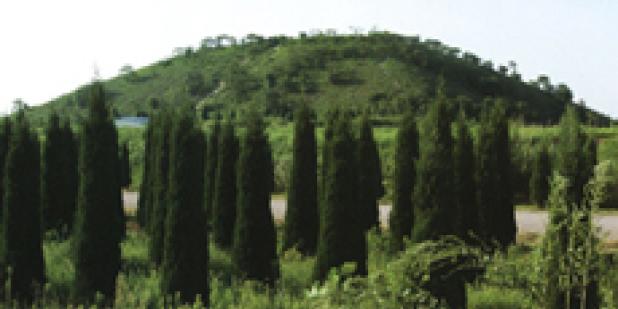Happy Lunar New Year from the USC US-China Institute!
Unaltered Landscapes: Monuments and Political Rhetoric in Early Imperial China
The Department of Asian Studies at the University of Texas at Austin presents a talk with Allison Miller.
Where

Emperors and rulers of the first Chinese empires placed great emphasis on their tombs, beginning construction on these sites the moment they assumed the throne and devoting a significant portion of the empire’s resources to this purpose. As a result, most works of early Chinese art derive from a mortuary context. With the rapid pace of China’s recent economic development, key excavations have brought to light a wide range of new evidence from imperial and royal tombs across China. Based on research conducted at these sites, this talk will re-examine the question of why imperial tombs became so critical to early ruling elites through the investigation of a sudden shift in the architectural style of tombs that occurred in the mid-Western Han—the emergence of the rock-cut mountain tomb. The revolutionary nature of these sites and their engagement with the landscape, it will be argued, played a significant role in communicating the political structure and organization of the early Chinese state. This talk will also demonstrate how the transformation of the natural mountain form into representative space had a strong impact on later traditions of Chinese landscape art.
Allison Miller (Ph.D. Art History and East Asian Languages and Civilizations, Harvard University) is an assistant professor in the Department of Art and Art History, Southwestern University, Georgetown, Texas. She specializes in the art, archaeology, and history of early China.
Featured Articles
We note the passing of many prominent individuals who played some role in U.S.-China affairs, whether in politics, economics or in helping people in one place understand the other.
Events
Ying Zhu looks at new developments for Chinese and global streaming services.
David Zweig examines China's talent recruitment efforts, particularly towards those scientists and engineers who left China for further study. U.S. universities, labs and companies have long brought in talent from China. Are such people still welcome?






